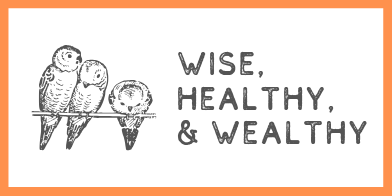In the pursuit of a healthier and happier lifestyle, incorporating simple habits can make a significant difference. But if you’re confused where to begin, Reddit users are here to help! They’ve shared a list of 10 easy and effective ways to enhance your overall well-being. So, let’s dive in:
10. Staying Hopeful

The world is full of problems, challenges, and reasons to complain. It’s exceptionally easy to feel pessimistic. Here are a few ways to fight the temptation to become cynical and remain positive, upbeat, and hopeful:
- Practice gratitude. It might not feel like it, but there’s always something for which to be grateful. If you’re struggling to identify anything, stop and look at the plight of others. Someone has it worse. It doesn’t have to be anything big, either. Got a hot cup of coffee in your hand? Bet it’s delicious, perking you up, and helping you concentrate. Got some food on the table? Many people don’t. And so on…
- Turn off the news. Yes, keeping up with current events is valuable. But “the news” is a business. They have to make money. And to make money, they need your attention. It’s easier to get it using negative and provocative headlines. At the very least, don’t binge on it. Get your news from a few reliable sources and dip in and out. There’s only so much negativity you can take before it impacts your mood.
- Focus on what you can change. It makes no sense to worry about anything that’s beyond your control. So focus on what you can Be kind. Give back to your community. Help when and where you can. Be a good role model.
- Eat well and exercise. Sometimes it can feel like the world is ending, but you really just need to go for a walk, catch up on some lost sleep, or replenish your stocks of a vital nutrient. Again, focus on what you can control. A good diet and regular exercise are two of the most effective ways to improve your mood.
9. Saving Money

The idea that saving money could be easy in today’s world might sound laughable. But you’d be surprised…
For example, when was the last time you audited everything that you subscribe to? Research shows people spend over $25 a month on average on unused subscriptions. That’s $300 a year. Likewise, the average US household throws out $1,500 worth of food annually. And an average American spends $300 each month on impulse purchases alone.
So, clearly, there are some areas of life where most people could cut back on spending without really suffering (or, in some cases, even noticing).
8. Sleeping

Sleep is central to our well-being. You only have to look at the impact of sleep deprivation for proof. It can lead to numerous chronic health problems, including diabetes, heart disease, high blood pressure, obesity, and depression. There’s also an emotional toll, of course, as well as an impact on your ability to focus.
Alas, getting a good night’s sleep can be easier said than done. And, in some cases, there’s no quick fix available. That said, we can all do some simple things to boost our chances of enjoying a deep and restorative sleep. For example:
- Establish a sleep routine. Go to bed at the same time each night (and wake up at the same time each morning), do the same things before bed, give yourself a chance to wind down…
- Unwind effectively. Trying to sleep when you’re wired after work isn’t a good idea. Give yourself a chance to relax. Listen to calming music, read a book, and try meditating or breathing exercises.
- Make sure your room’s conducive to sleep. It should be dark, quiet, cool, and comfy – and preferably with a supportive mattress and pillow(s).
- Stop trying so hard. Trying to force yourself to sleep when you can’t is fruitless. You’re fighting a losing battle that often makes matters worse. The trick is to let go. The moment you stop wanting so desperately to fall asleep is probably when you will.
- Avoid caffeine, alcohol, and nicotine. Each of them is more likely to keep you up than help you drift off.
7. Waking Up Earlier

You don’t have to wake up at 5am every day. But there’s definitely something to be said for the old adage that “the early bird catches the worm.” It’s about seizing the day and maximizing your time rather than lazing in bed all morning when there’s stuff to be done.
However, when the alarm goes off, and your bed feels so darn cozy, it’s insanely easy just to hit snooze (half a dozen times) and ignore the part of you that wants to get up. Here are a few easy/sensible ways to address this:
- First, go to bed at a reasonable hour each night so you actually get enough sleep by morning
- Second, have something in the diary that you want or need to do that morning
- Third, put your alarm/phone on the other side of the room, so you have no choice but to get out of bed to turn it off
6. Swimming

Like most sports, swimming looks easy when you watch the pros do it. But then you jump in the pool and realize that couldn’t be further from the truth. If you’re not a regular swimmer, have bad technique, or are simply out of practice, then few types of exercise are as difficult/draining.
And that’s a shame because swimming’s also a fantastic way to build endurance and strength. It’s ideal for anyone with knees/joints that can’t withstand the rigors of running as well. And there’s definitely a therapeutic aspect, too.
Thankfully, getting better at swimming is easier than you think. How? With something called the Total Immersion method. We first heard of this from Tim Ferriss and went on to read about it on his blog, here. He summarizes it incredibly succinctly there and has videos, too, so we recommend checking that out for all the details.
5. Meditating

While looking after ourselves physically is crucial to a long and happy life, our mental health is equally important. And one of the best ways to nurture it is by meditating.
This ancient practice is scientifically proven to reduce stress, control anxiety, boost self-awareness, improve attention, facilitate kindness, and much more. Unfortunately meditating is surprisingly difficult, too.
Somehow, just sitting and focusing on your breath, or a mantra, or the sounds in your environment, or whatever, is a recipe for discomfort, agitation, and frustration. You realize how hard it is to be present. Many people stop doing it as a result.
One strategy for making it easier is to use guided meditation apps, like Headspace or Calm – both of which have free trials and starter plans. As a beginner, having somebody walk you through specific meditations can make the process more enjoyable, more beneficial, and easier to stick to over time.
4. Working Hard

Getting better at anything in life requires working hard, consistently, for extended time periods. The same goes for any big goal you’re trying to achieve. But it’s called “hard” work for a reason!
It’s uncomfortable. There will be plenty of times when you don’t want to do it. And that’s why most people don’t. It’s much easier to stay in bed, do just enough to get by, and not aim for anything in life (because then there’s no risk of failure).
Ironically, one way to make hard work easier is to take breaks. Remember, hard work for the sake of it is pointless if you aren’t being productive – if you aren’t getting closer to where you want to be. The paradox of taking breaks is that you can achieve more, despite working less.
You recharge your batteries, get a second wind, and restore your creative spark. Think of the recovery period after a big workout. You need both to build muscle: intense activity followed by quality rest. It’s the same with all types of hard work.
3. Maintaining a Good Diet

Eating low-calorie density foods isn’t the only way to improve your diet with less difficulty. Here are a few other tips that’ll help:
- Stop buying sugary, fatty, high-calorie snacks. If they’re not in your kitchen cupboards, you can’t eat them as easily! That’s important when your motivation levels dip and want to “relapse” to an unhealthy diet.
- Plan easy, quick, low-calorie snacks instead. The easier they are to grab and eat, the better. Think: rice cakes and cottage cheese, carrot sticks and hummus, oats with blueberries and Greek yoghurt, strawberries…
- Do weekly food prep. Make bulk portions of healthy, low-calorie meals on a Sunday, then pop them in the freezer. Again, convenience is king. Having those nutritious meals ready and waiting reduces the temptation of takeout, snacking, and so on.
2. Losing Weight

According to the CDC, almost 42% of the US population is obese these days. So, clearly, tens of millions of us could benefit from losing a few pounds.
But again, this can be easier said than done. As we just discussed, exercise is hard – especially when you carry extra weight. And giving up sugary, fatty, and delicious processed foods isn’t a walk in the park, either. Likewise, some people try every diet in the book and, no matter how hard they try, still don’t manage to lose weight.
Here’s a simple and proven trick that might help, though:
Fill your diet with low-calorie density foods. Unlike lettuce and celery, these foods are a magic combination of filling, satisfying, and low-calorie. That means you can eat loads of them, feel full, and still shed unwanted pounds.
This is important because, to lose weight, you have to be in a “calorie deficit,” which is when you burn more calories than you consume each day.
Good examples of these types of foods include oats, non-fat Greek yogurt, berries, eggs, low-fat fish (e.g. cod, sole, or flounder), sweet potatoes, ordinary potatoes, lean meats, and legumes. You can turn these foods into delicious, hearty, and nutritious meals that are surprisingly low on calories. Stick to that type of diet over time, and you should shed weight with no suffering whatsoever.
1. Running

Running is arguably one of the best physical activities for boosting our overall well-being. Unfortunately, it’s also hard work – especially when out of practice.
Thankfully, there’s something called “zone 2” running that can make it a gazillion times easier. Think of it as permission to run slowly. So slowly, in fact, that you’ll probably end up walking a lot when you first start.
It can get a little technical. But the general idea is to keep your heart rate below a certain level (roughly 60 to 70% of your max heart rate) at all times on your run. You run/jog at a pace where you can maintain a conversation and/or breathe through your nose. As you keep doing it, you’ll get faster, and faster, and faster, without exerting any extra effort. It’s like running without the suffering.
READ MORE ARTICLES LIKE THIS:
10 Things That’ll Improve Your Life So Much You’ll Wish You Did Them Sooner

What improved your life so much, you wished you did it sooner?” That’s another question someone just posed on Reddit. Click below for the 10 best answers!
10 THINGS THAT’LL IMPROVE YOUR LIFE SO MUCH YOU’LL WISH YOU DID THEM SOONER
10 of the Laziest/Easiest Ways to Lose Weight (According to the Internet)

Losing weight doesn’t have to be difficult! Click below to discover 10 solutions for doing it the easy way.
10 OF THE LAZIEST/EASIEST WAYS TO LOSE WEIGHT (ACCORDING TO THE INTERNET)
10 Effective Ways to End Conversations With People Who Won’t Stop Talking (According to the Internet)

Some people take “blabber mouth” to a whole new level. Ever wondered what to do when they literally won’t stop talking? Here are 10 effective suggestions…
10 Things Older Folks Think Today’s Younger Generation Need to Hear

With age comes wisdom, right? So what advice would people with a few more years under their belt give to kids growing up today? Find out here.
10 THINGS OLDER FOLKS THINK TODAY’S YOUNGER GENERATION NEED TO HEAR
10 Key Secrets to a Successful Relationship You Should Learn ASAP

Every relationship is different. But there are some universal truths that’ll make every single one of them a little bit more successful. Click below for 10 relationship secrets people wished they’d learned sooner.
10 KEY SECRETS TO A SUCCESSFUL RELATIONSHIP YOU SHOULD LEARN ASAP

